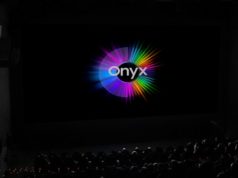With all the smartphone-based talk about the leading edge of the industry focusing on upcoming 10nm chips, it might be easy to forget that the majority of smartphones sold in 2017 will still be on 16nm or 28nm and are more likely to be A72/A53 based rather than A73 or custom cores. Earlier this year we have already seen the launch of the Xiaomi Redmi Note 4 in India, with a surprising twist: Xiaomi downgraded the SoC in that phone (with lower peak performance) over the Note 3 due to the power saving advantages of using eight ARM Cortex A53 cores on 16nm in the Snapdragon 625 over using a 2+4 configuration of A72/A53 as seen in the Note 3 on 28m. At the time we postulated that this is going to be a trend through 2017: we’ll see mid-range smartphones go after power efficiency with smaller cores and smaller chips on more power efficient processes in exchange for performance. Nonetheless, the power efficient chip does still need some performance, and Mediatek is announcing the P25 for this. The P25 features a significant step up from the P10, and speed boost to the P20. This allows the P25 to support dual cameras as well.
| MediaTek 2017 H1 20-Series Lineup | ||||||||
| SoC | X20 | X23 | X25 | X27 | P20 | P25 | ||
| CPU | 2xA72 | 2.10 GHz | 2.30 GHz | 2.50 GHz | 2.70 GHz | – | – | |
| 4xA53 | 1.85 GHz | 1.85 GHz | 2.00 GHz | 2.00 GHz | 2.3 GHz | 2.5 GHz | ||
| 4xA53 | 1.40 GHz | 1.40 GHz | 1.55 GHz | 1.60 GHz | 2.3 GHz | 2.5 GHz | ||
| Memory (32-bit) |
LPDDR3 | 1 x 800MHz | 1 x 933 MHz | |||||
| LPDDR4X | 2 x 1600 MHz | |||||||
| GPU | T880MP4 @780 MHz |
T880MP4 @850 MHz | T880MP4 @875 MHz | T880MP2 @900MHz |
||||
| Encode | 2160p30 HEVC w/HDR | 2160p30 H.264 | ||||||
| Decode | 2160p30 10-bit H.264/HEVC/VP9 | 2160p30 H.264 & HEVC | ||||||
| Camera /ISP |
Single | Dual 32MP ISP @ 24fps | 24MP | 24MP | ||||
| Dual | ? | – | 2x13MP | |||||
| Modem | LTE Cat. 6 300/50 with 2×20 CA | |||||||
| Mfc. Process | 20SoC | 16nm FinFET | ||||||
The P20 was perhaps not as popular as Mediatek would have liked in 2016: it was in the Elephone P20 and the UMI Plus E, but that’s about it. By contrast, the P10 was popular. To entice handset developers to drop in a better chip to the updates for these devices in 2017, the P25 adds another 200 MHz into the cores over the P20, as well as increasing the internal Turbo Engine for a 30-35% performance boost. This allows the DSP to support dual cameras, up to 13MP+13MP, and puts it directly in line against devices such as the dual-camera based Honor 6X which uses the Kirin 655. The P25 also retains the support for dual channel LPDDR4X up to 6GB.
The rest of the P25 is similar to the older SoC: 4K30 decode for HEVC, 4K30 encode for H.254, integrated ARM Mali T880MP2 graphics, and a Cat 6 modem with support for 2×20 MHz carrier aggregation. Both SoCs support a screen resolution of Full HD at 60 FPS.
Given today’s announcement, it is highly likely that the P25 has been shipping to customers for long enough to perhaps see some design wins for Mobile World Congress, which starts at the end of February. There will be three of us at the show, so stay tuned for our coverage.






